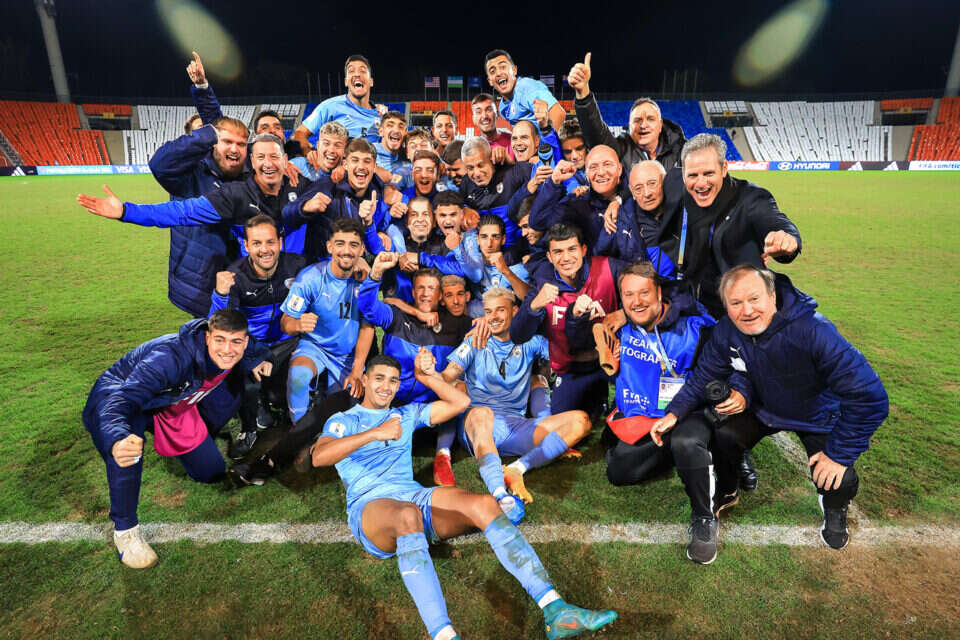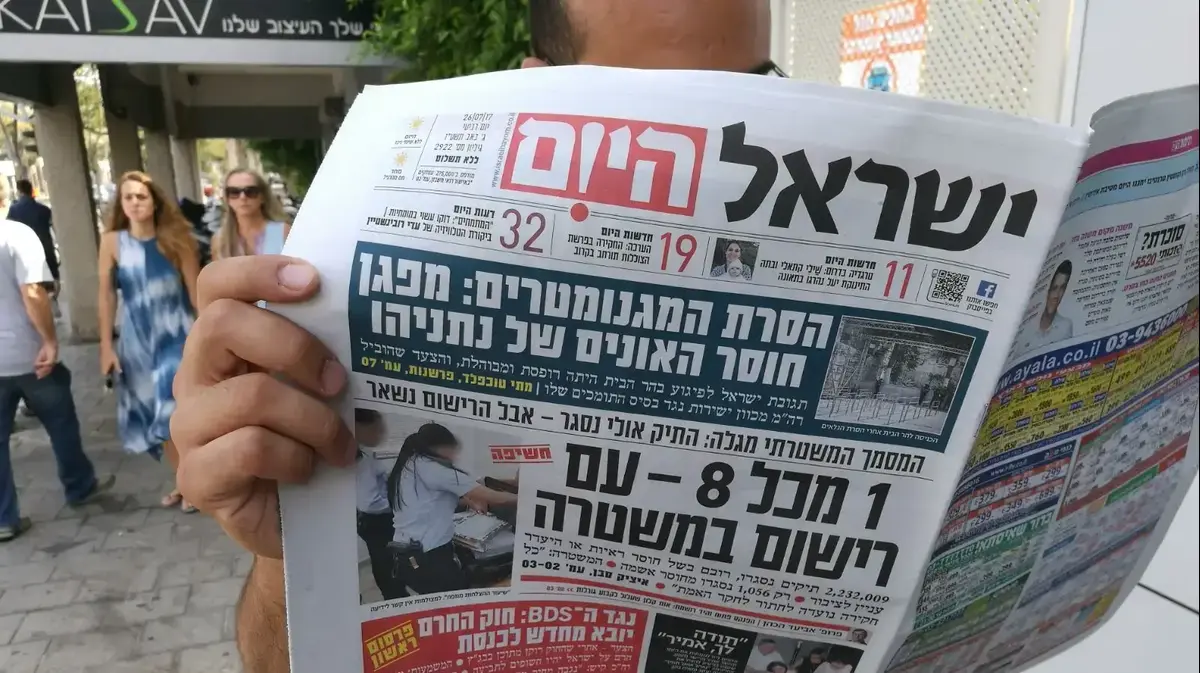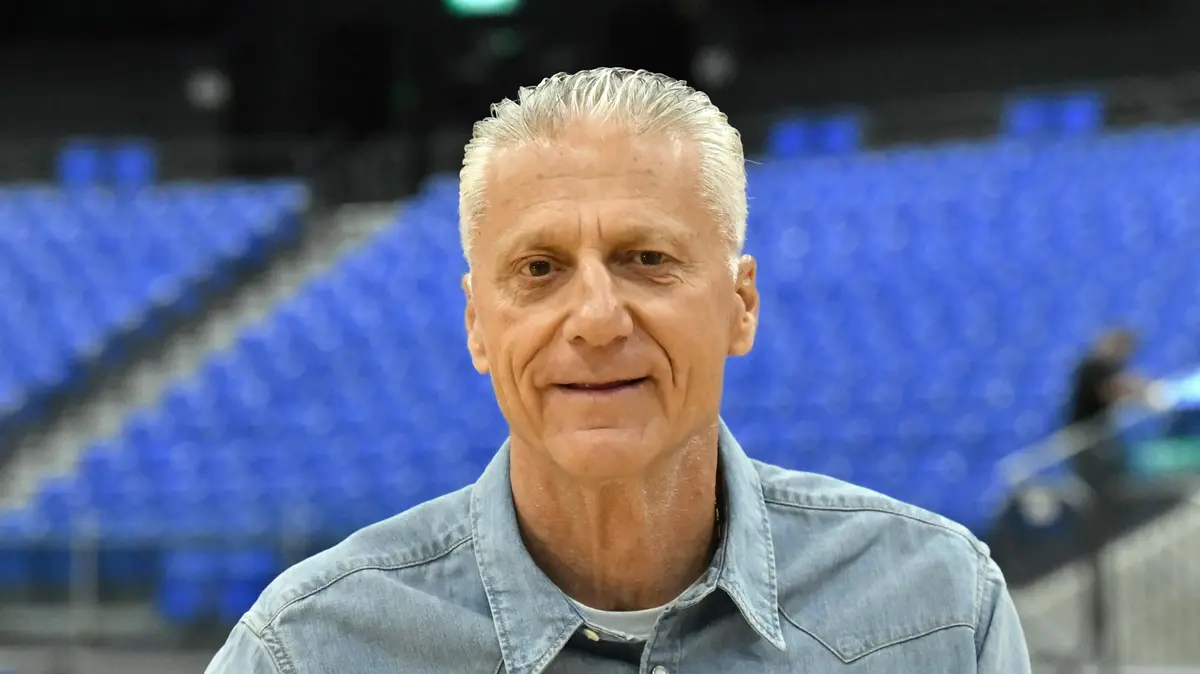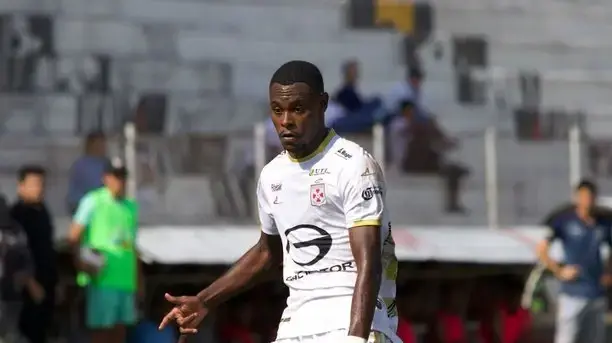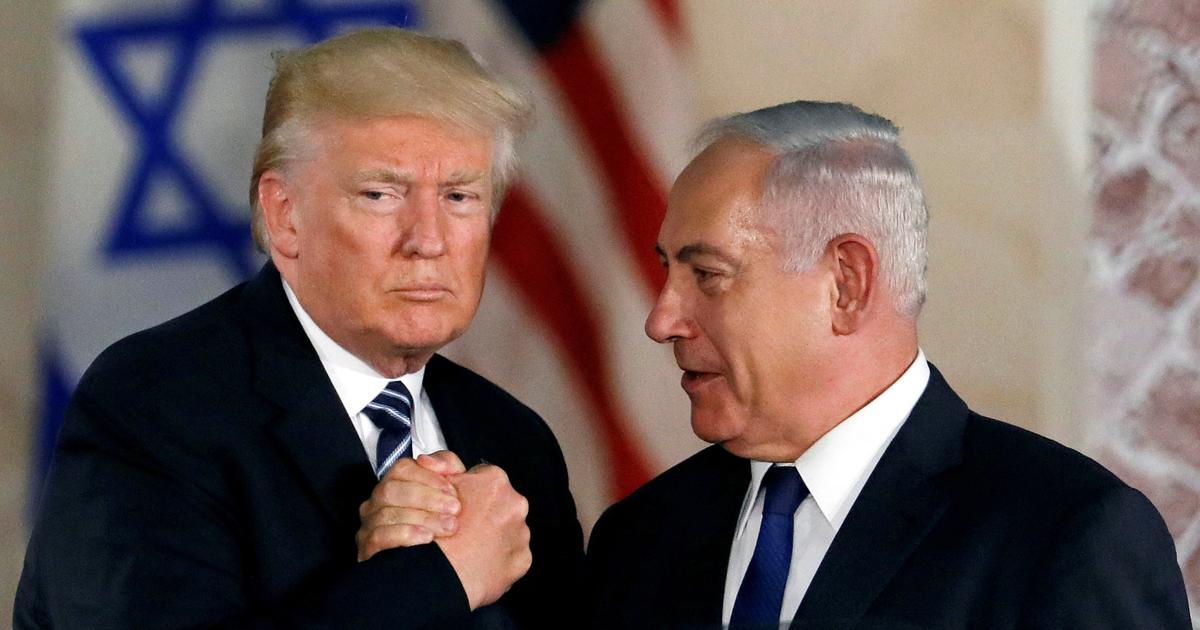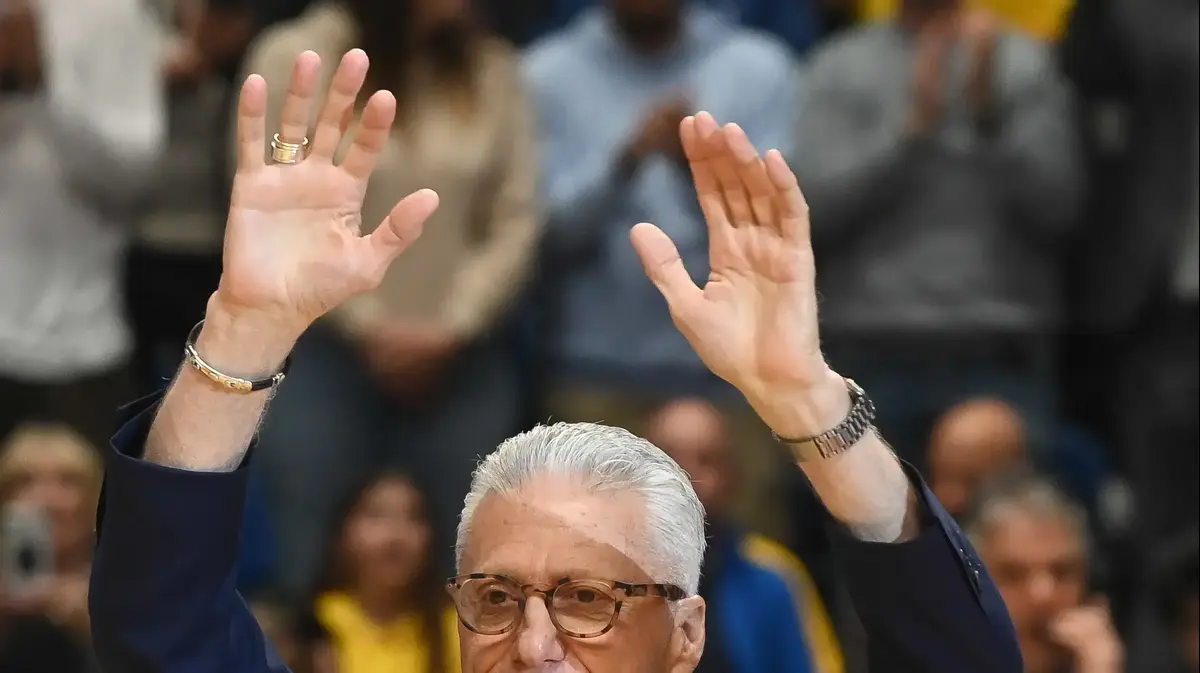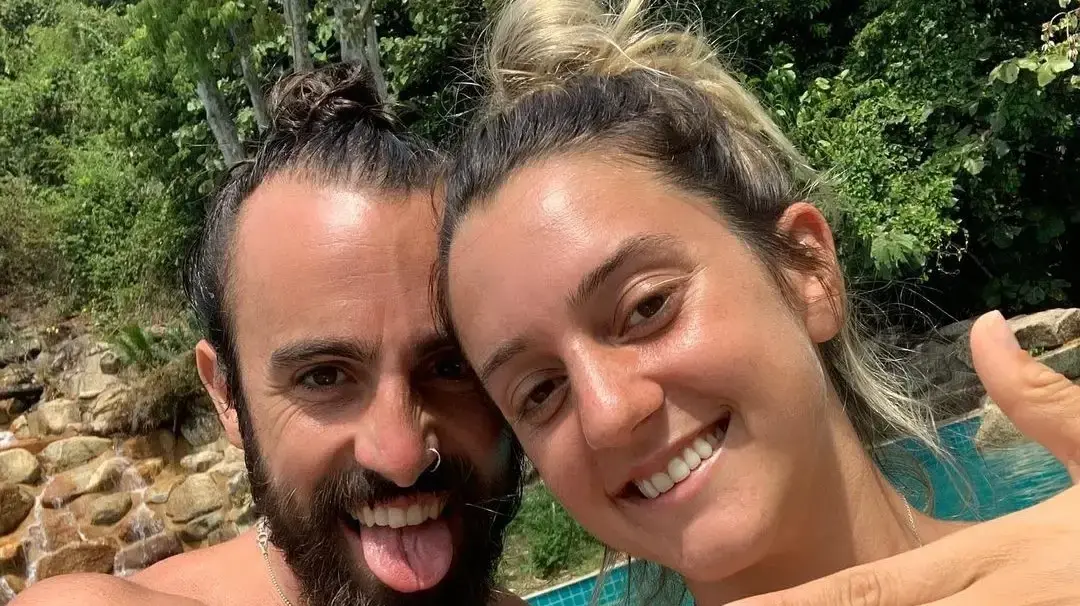Israel's under-20 team was 13 minutes away from the fact that its journey to the World Championship in Argentina would remain mostly its journey with itself. In order to enter the heart of the Israeli mainstream, certainly in sports, you have to create two things: a story and success, or in short, a success story. After almost three games in the group stage, the Israeli team had neither one nor the other.
They opened the tournament against Colombia, a strong South American team, and despite leading 0-1 from a Dor Turgeman penalty and being better for most of the game, conceded an equaliser, pulled back and surrendered 1-2 from a Colombian goal in the 90th minute. This loss sparked the discourse about the nature of Israeli football, about defeatism and physical inferiority, about mental difficulties and about the inability to deliver results at the moment of truth.
In the second game, the opponent was Senegal, the African champions, against whom Israel also dropped an early advantage but managed to secure an important and prestigious point. This is how the young players arrived at the last encounter against Japan with one point in the cup, with the options few and clear: victory - and it certainly goes on to the final eight, any other result means packing suitcases and home.
This match, unlike the first two held in La Plata on the outskirts of Buenos Aires, took place in Mendoza in the west. The beautiful city at the foot of the Andes has about 1,200 wineries that make it Argentina's wine capital, as well as a sizeable Japanese community and a Jewish community of about 5,000 people.
Shattering glass ceilings. National team players before the game against Senegal, photo: AFP
On Friday night, many of them took a seat at the Malvinas Argentinas Stadium for a fateful game for both teams. A cool breeze blew through the stands, temperatures soared to 5°C and the Japanese, needing only a draw to move on, opened better and often threatened the goal of the excellent Tomer Sarfati.
The Maccabi Netanya goalkeeper kept his goal with three early shots, but just before the whistle to end the first half, a short communication between him and the defenders led to a Japanese advantage. Cheers of joy could be heard in the upper corner of the North Stand, where Mendoza's Asians had gathered, as silence pierced the Israeli stand. The optimism meter, which plummeted just after the team fell behind, almost completely crashed when substitute Ran Binyamin was sent off with two yellow cards. There are 13 minutes left on the clock and Israel, with ten players, needs two goals. Just then, two things happened: story, and success.
Become a bestseller
The victory against Japan, the final 13 minutes of which we will dive deeper, and the promotion to the final eight, made the team's story a bestseller. In Israel, of course, but not only. As soon as the game was over, I received inquiries from the Jewish community in Mendoza in an attempt to arrange a meeting between members of the media and members of the community. We made an appointment, and the next day we met at the compound of Maccabi Mendoza, the community's talented soccer team, for a conversation about football, society and culture.
"Bubba Vivi" (Grandma Vivi) told us that the match against Japan was the first soccer game for her grandchildren, who all came with Israeli flags and came home drunk from victory. Others said they felt fortunate to have had the opportunity to see an Israeli team in their city, and promised they would make efforts to bring everyone they could to the eighth final against Uzbekistan.
National team players Rui Revivo (right) and Tai Abd in the eighth final against Uzbekistan, Photo: AP
At the same time, rumors about the exciting team reached the ears of Israeli travelers, who quickly packed the mochile and arrived in Mendoza from places such as Buenos Aires and Bariloche, as well as from Santiago in Chile, Tulum in Mexico and more.
"It was clear that we would do everything to come and support the team," explained Itamar, who invested quite a bit of money in the journey and in purchasing tools of encouragement. For Israeli and Jewish fans, this is a must-see event. Few things are more rooted and exciting than being at a sporting event of your country on the soil of another country. The sense of "us against the world" is so overwhelming that you don't have to be a great patriot and certainly not a football fan to want to be part of it.
Tuesday night's eight-final match in Mendoza drew about 10,000 spectators, many of whom supported and encouraged the team in blue. The big fear was that expectations and interest would hurt the young players, but they continued on their own and for the second time in three days won with a huge goal in extra time.
This time the goalscorer was Anan Halaili, Maccabi Haifa's striker, who pushed his foot away after a loose ball by Eli Madmon and scored to make it 0-1.
The feeling of "us against the world" is so overwhelming. Israeli fans in the eighth final Mel Uzbekistan, Photo: GettyImages
For the second time in three days, a pile of players in blue celebrated a dramatic victory goal on Mendoza's lawn, shattering another glass ceiling and shattering another prejudice about our football. "It was worth the whole trip we made here," said fan Ilan, who arrived from Mexico on the morning of the game.
It would have been obvious to call this gate "unbelievable" as well, but there is an issue with this term. Incredible remains unbelievable only if it happens once. Once the unbelievable happens twice – certainly in such a short period of time – it automatically becomes unbelievable. And when something incredible happens in football, it's usually about the coach.
Here it is definitely related to Ofir Haim and his young team, which continues to teach us all new things about our football. Maybe on Saturday night they will teach him that the Israeli national team can beat even Brazil in the quarterfinals of the World Cup. Go know with them.
A historic achievement. Coach Ofir Haim celebrates with the players and staff after the victory over Japan, Photo: AFP
"Openness helps"
In the story of this team, it is important to return for a moment to the starting point. In August 2021, Ofir Haim was appointed coach of Israel's youth team. Haim, a former striker who played for Hapoel Be'er Sheva, Ironi Rishon LeZion, Maccabi Tel Aviv and Maccabi Netanya, previously coached Maccabi Sha'arim, Hapoel Afula, which he led to win the Toto Cup of the National League, Hapoel Tel Aviv for a spell that lasted only seven games, and Hapoel Kfar Saba, with whom he was promoted from the National League to the Premier League.
Then, two years ago, 48-year-old Haim was in the middle class of Israeli coaches, even below. A professional who was swallowed up by a sea of local football coaches. It was the connection to the young guys that changed his image completely, professionally and personally.
A new generation of winners. Captain Eli Madmon (right) and defender Stav Lemkin celebrate reaching the quarter-finals, photo: Courtesy of Assi Kieffer, Israel Football Association
"From the beginning I believed in these players. I wanted to play a lot of preparatory games in Europe, but some professionals told me we would be beaten 0-5," he said this week in a conversation at the team's hotel in Mendoza. "I remember sitting with myself and asking why would we get 0-5? We are a great team, how can you come up with such a defeatist attitude?"
Ofir Haim's team traveled to France and Spain, beat the Spaniards and drew with the French. There were also tough losses to the Netherlands and Germany, but throughout this process a special connection was created between the coach and his staff and the national team players.
"Being a national team coach and reaching such a connection with the players is almost impossible," Haim clarifies. "If the connection starts and ends only with training, it's very difficult. I meet with them personally and we don't talk about football at all, but about life. That's part of it. I talk to them about their friendship and what's going on in my house."
The personal story of the national coach – the one he goes through at home – is interwoven with the story of this team. Chaim has three children, one of whom, 23-year-old Or, was diagnosed at the age of two as being on the autistic spectrum. For years Haim carried it inside and was very reserved, determined to show the whole world that nothing moved him and that he had to hold the whole family on his back.
"I realized I was depressed about it," he says of the moment when everything changed. "I kept everything inside and only fell apart when I was alone. It would have crushed me to pieces, I couldn't function. I ran away from struggles and everything, and then I went to therapy."
The treatment he underwent transformed him from a closed and introverted person to an open, sociable and optimistic person in an unusual and inspiring way. "In therapy they told me, 'Be who you are,' and suddenly it released something in me. I started sharing and felt a lot of weight coming off my shoulders. I love it, because openness helps me too."
And just as openness helps a coach, it helps him communicate with the players. Last week, for example, when he was concentrating on preparing for the game against Japan, Haim heard that his son Or had gone for an eye test in Israel and was found to barely see.
"It crushed me that I was here and I didn't know about it," says Haim. "Or can't tell me he can't see well, so the boy went for a few months when he just couldn't see. These are things I also bring to my professional work. There's no such thing as not knowing something about the players. I want to know how they feel and what they're going through, so I go room-by-room, talk to them about nonsense, and then identify players who are in distress or a little stressed. Sometimes I feel them just by the look, but these are things that with Or I can't do."
The element of faith
Alongside the openness of life, there is also the element of faith. From the moment he took the team to the toughest preparatory games in Europe, Haim set goals that until then seemed lofty - and met them all. They first secured promotion to the European Championship with a 0-1 victory over Scotland and became the third youth team to qualify for the continental tournament. There, in Slovakia, they advanced from the group stage to the semi-finals, stunned with a 1-2 victory over a strong French team and eventually succumbed to England in the final only after extra-time (1:3).
The success at the European Championship swept the country and put Haim and his players in the spotlight for the first time. Everyone talked about the young group that shattered a glass ceiling, about the strong character and winning mentality, and especially about Oscar Gloch. The gifted midfielder, then still at Maccabi Tel Aviv, was the team's top scorer with three goals and one of the best players in the tournament. Gluch has become the face of the rosy future that awaits Israeli football, and he has indeed progressed like a meteor. Last January, he signed for Austrian side Red Bull Salzburg, and at the same time managed to make several appearances for the senior Israeli national team and even score a debut goal.
Coach Ofir Haim: "If the connection to the players begins and ends only in training, it is very difficult. I meet with them personally and we don't talk about football at all, but about life. That's part of it. I talk to them about their friendship and what's going on in my house."
The prize for qualifying for the semi-finals at the 2022 European Championship was a ticket to the FIFA U-20 World Championship, which also appeared on the list of goals of life - and this is no small matter. The last and only time any Israeli team played in a world soccer tournament was at the 1976 Olympic Games in Montreal. No team of any age has been able to replicate this feat, until a bunch of lives.
According to the original plan of FIFA, the World Football Association, the tournament was to take place in Indonesia. However, at the end of March, less than two months before the opening date, Indonesia was denied the right to host because of protests against Israel's participation. For several days, the identity of the new tournament host was up in the air, until the official announcement came out on 17 April that Argentina would be the new host.
Rumors about the team reached the ears of Israeli travelers, who packed the mochile and came to Mendoza from Buenos Aires and Bariloche, as well as from Santiago in Chile, Tulum in Mexico and more. "It was clear that we would come," explained Itamar, who invested quite a bit of money in the journey and in purchasing cheerleading tools
It is important to note: the Argentina team did not qualify for the original tournament through qualification, but thanks to the hospitality they entered in place of Indonesia. The Israeli delegation was very happy to hear the decision. Argentina is one of the biggest football countries in the world, a reigning world champion and certainly more pleasant to Israelis than the Muslim country. "We will have support from the Jewish community," was a phrase said before boarding the plane that turned out to be very true.
To the delight of the team, and also to the delight of the Kan 11 broadcasting team, which includes me, the first stop was Buenos Aires. The first two games were played in La Plata, an hour and a half from the capital, when the base was in the perfect football city in the world. The team held its first training sessions at the stadium of Arsenal Masrandi, a small club founded by former association president Julio Grondona, and it was there that everyone began to understand where they had come. The football culture in Argentina is special and unique, one that allows you to experience at every moment and in every corner the emotions and emotions of this wonderful sport. From there the team traveled to the Diego Armando Maradona Stadium for its first game against Colombia.
As for Maradona, you have to be in Argentina to understand what it's all about. For the new generation, Leo Messi is the greatest Argentine football idol, but for the older generation, Diego is the man who changed everything when he led the team to its second World Cup, in 1986. On every street corner you can find portraits of him smeared on walls, his face is everywhere. "I'm a fan of Diego," Haim admitted on one occasion when he came across a giant photo of the former player. "Obviously it does something to be here and see his pictures."
Found everywhere. A mural of Maradona hoisting the 1986 World Cup, photo: Dor Hoffman
The idols of the old and new generation. Right: Murals of Daniel Passarella with the 1978 World Cup and Leo Messi with the trophy last year, photo: Dor Hoffman
Against Colombia, at least in the first part of the game, it seemed to do something for the national team as well. Israel played well, leading 0-1 and only because of the great ability of the Colombian goalkeeper was the result not much higher, but the Colombians reversed the score and scored the winning goal in the 90th minute, which left the team despondent.
"We played well and we're not going to lower our heads, there are more games and everything is open," said left-back Roy Revivo, Haim Revivo's son, and he was definitely right. A 1-1 draw against Senegal in the same stadium brought Israel into its final match against Japan, knowing that its only option to move on is to win.
The prophecy fulfilled
Back to the 77th minute against the Japanese, when everything seemed finished and a message had already been sent home: "Tomorrow we take off back." The history of Israeli football is not full of heroic comebacks and it was hard to believe that one would be added now, but then came Roy Nawi, who put his head in the right place and made it 1:1.
The clock was ticking, and Israel with ten players was better and more determined than Japan, which played with 11. In the 81st minute, I asked the man next to me to take a picture of the stadium screen, so that it would be clear that this was a true prophecy, and I told the camera: "One hundred percent that Israel is winning, and I have no doubt that Omar Senior will score the victory goal."
Senior, a striker for Hapoel Tel Aviv, had played very little until that moment. He arrived at the tournament a year after being the tragic figure at Euro 2022, when he was left out of the squad at the last minute due to a professional decision by coach Haim. Throughout the tournament in Argentina I saw him training and determined to prove, so I allowed myself to appreciate that he would score the winning goal.
In the 92nd minute, Senior started the move, which turned the story of this team in the World Championship into everyone's story: he delivered a pass to Stav Lemkin, a Hapoel Tel Aviv defender and one of the best in the tournament so far, who sent a pass to Dor Turgeman, Maccabi Tel Aviv striker and the main cog in the attack. Turgeman, with a magical touch, sent a heel to Senior, who kicked in. 1:2 Israel.
"We did it for everyone," coach Ofir Haim said in tears after the game against Japan, and did not forget to send kisses to the family and Ben Or, who predicted that Israel would win 1-2. The clock in Israel showed 2:00 a.m., but social networks surged
"I had a conversation with Senior a few months ago and I told him, 'I think I was wrong about you,'" Haim said of his relationship with the hero of the moment. "He came into my room the night before the game and told me he loved me very much and felt like we were missing out. I told him that I love him and that he's here not because I love his soul, but because I think he's a great actor. He said, 'Then let me give you back on the field.'"
Senior returned, and at the final whistle all the players in Amok ran to celebrate the historic achievement - advancing to the final eight. Ofir Haim lay down on the grass hugging Lemkin and Revivo, a few seconds passed, and everyone jumped into one big pile of players.
"We did it for everyone, we knew how much they wanted us to do it," the coach tearfully told the television cameras, not forgetting to send kisses to the family and Ben Or, who on the morning of the game predicted that Israel would win 1-2. The result – but much more so the way – reignited the story of Ofir Haim's young group. Even though the clock in Israel showed 2:00 a.m., social networks surged following the enormous achievement.
"Don't want home"
It is important to emphasize: the players in the Israeli national team are up to the age of 20. Some of them are already playing in their club's first team, but many are still in the youth teams and are on the verge of transitioning to senior football. The trip to Argentina tests their footballing abilities, but also much more.
The distance from home, being together, dealing with the pressure and expectations - these are all things aimed at preparing the young players for what lies ahead. It's not easy, but they succeed. When you see and hear them, it's easy to understand how. The social fabric is the first thing that springs to mind in the context of this team. El-Yam Kanzpolsky, Eli Madmon, Stav Lemkin and Roy Revivo are the more experienced and talkative ones at the front, the ones who post the TikTok videos that bring in tons of likes, but each seems connected to those next to them.
The atmosphere in training is great, and this is also responsible for the many staff members who surround the team and take care of the needs of the players. Assistants Eyal Gidron and Itay Mordechai, goalkeeping coach Guy Solomon, fitness coaches Udi Ben-Simhon and Ofer Eckstein, the medical staff that includes Mickey Zeger, Nissan Davidi and Igor Lomovsky. Alongside them are technical director Bonnie Ginzburg, team manager Assi Meir, press officer Eitan Dotan, as well as a chef, photographer, analyst, administrative manager and quartermaster, each of whom is committed to the work and the players.
Another thing that stands out is the family support. Parents and family members of players made it all the way from Israel to Argentina, with an open ticket that has already been extended twice, gnawing their nails and accompanying the children every step of the journey. "We don't want to go home," is the phrase that is said the most here. Neither do we.
Wrong? We'll fix it! If you find a mistake in the article, please share with us

